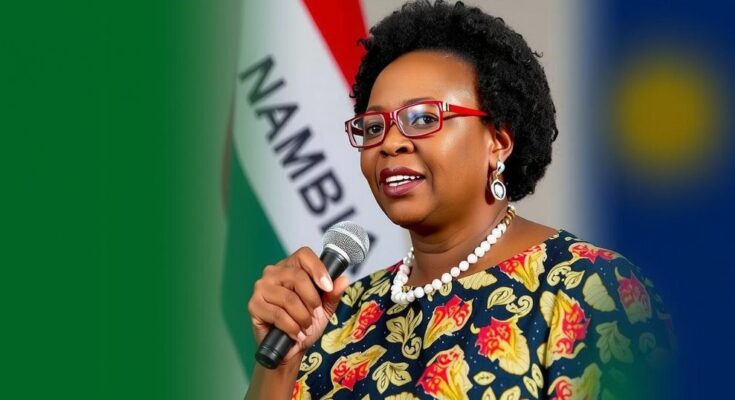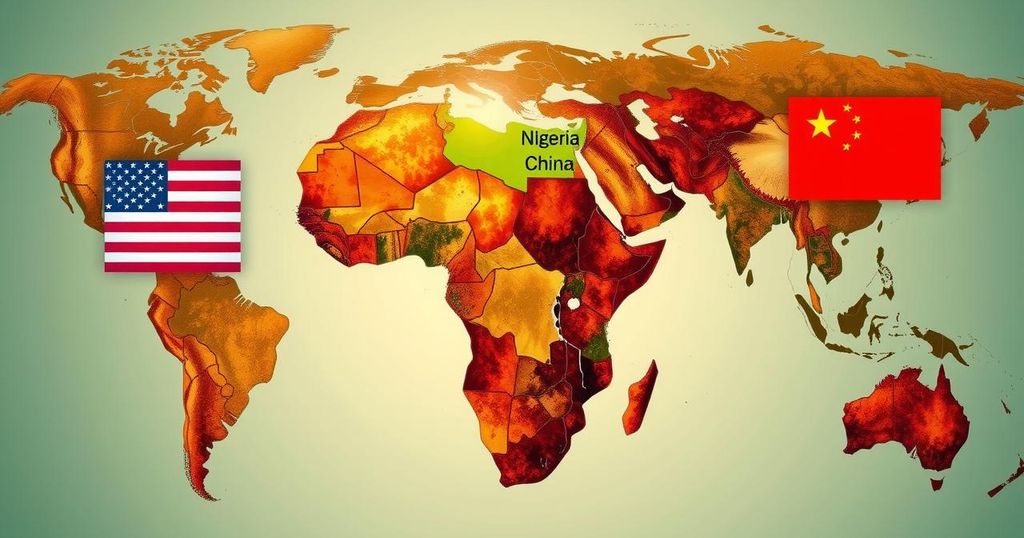Namibia elected Netumbo Nandi-Ndaitwah as its first female president after a disputed election that she won with over 57% of the votes. The election faced significant logistical challenges leading to accusations from the opposition of irregularities and calls to nullify the results. Despite the controversy, Nandi-Ndaitwah’s victory marks a historic moment for women’s leadership in Namibia.
Namibia has achieved a significant milestone by electing Netumbo Nandi-Ndaitwah as its first female president. Following a contentious election process, the Electoral Commission of Namibia (ECN) reported that Nandi-Ndaitwah garnered over 57 percent of the votes. The election, however, was marred by logistical failures, including a shortage of ballot papers and extensive queue times that left many voters waiting for up to 12 hours. The opposition, represented by Panduleni Itula of the Independent Patriots for Change (IPC), contested the legitimacy of the election results, citing numerous irregularities and vowing to challenge the outcome officially. Despite these challenges, Nandi-Ndaitwah’s victory marks a defining moment in the country’s history, as she becomes the first woman to lead Namibia since its independence in 1990, under the leadership of the South West Africa People’s Organisation (SWAPO).
The recent election in Namibia has been a pivotal event, marking the ascension of a female leader in a historically male-dominated political landscape. Since gaining independence from South Africa in 1990, Namibia has been primarily governed by SWAPO, which has maintained dominance in its political sphere. The election process faced significant challenges, raising questions regarding electoral integrity, logistical capabilities, and the responsiveness of the electoral commission to voter needs.
In conclusion, Netumbo Nandi-Ndaitwah’s election as Namibia’s first female president signifies a historic achievement for gender representation in leadership positions. However, the electoral process raises critical concerns regarding electoral management, transparency, and the need for reforms to ensure the integrity of future elections. The opposition’s claims and the acknowledgment of shortcomings by the electoral authority highlight the challenges that remain in establishing a fully equitable electoral framework in Namibia.
Original Source: www.nigerianeye.com




